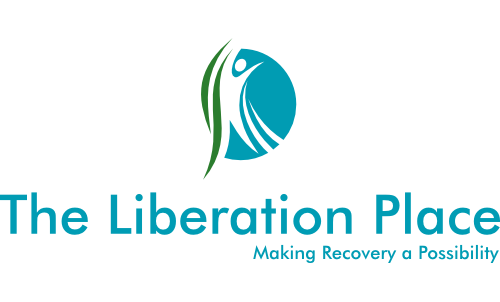The Skills Required for Sustainable Change
When it comes to deep routed behaviours, there are a variety of different ideas out there for what it takes to create sustainable change. Before we can step into any of these approaches specifically, it's important to understand that there is no single method that works for everyone. Even more important is the fact that any approach that’s grounded in evidence-based research, will have successful outcomes if the theories and implementation line up with what we believe we need, and therefore, we actually do the work that's being asked of us to make the changes we are trying to make. In other words, if we believe in what we are being asked to do then there’s a high probability that we will actually do it.
It is also true, that across the board, all of these evidence based approaches acknowledge one thing. Our emotional experiences have a significant impact on our behavioural responses. Emotions shape the things we do, from those little routines we fall into every single day, to our in the moment extreme and often chaotic reactions. Whether this is tied to an emotional experience that’s currently present in our system, or if it's an avoidance tactic to get away from the possibility of an uncomfortable emotional experience we are expecting in the future. Our behaviours are usually triggered by our fear of a particular emotional experience that we do our best to avoid in some way.
Emotions shape the things we do, from those little routines we fall into every single day, to our in the moment extreme and chaotic reactions. Whether this is tied to an emotional experience that’s currently present in our system, or if it's an avoidance tactic to get away from the possibility of an uncomfortable emotional experience we are expecting in the future.
~Steven Morris RP
I truly believe that all of our adult behaviours are shaped by our childhood experiences, and the stories we created during that impressionable time of life. So, it makes sense that at some point, we have to go to work on changing the perception these experiences gave us about ourselves, other people, and life itself. However, before we can step into this deeply emotional work we have to start by building a solid foundation, grounded in the skills of Dialectical Behaviour Therapy (DBT) to set us up for successful implementation of what it is we are trying to achieve. Once this foundation is in place, we can step into the emotional work of re-educating our system away from the rigidity attached to our childhood schema. We do this by combining the skills of DBT with the theories of Schema Therapy, and its multiplistic personality approach, to build a deeper understanding for why we do what we do.
For me, this work started with understanding the skills of Rational Emotive Behaviour Therapy (REBT) which introduced me to the fundamental principle of Unconditional Acceptance of Self, others and the way life is. Accepting myself means accepting each and every part of my personality as an important part of who I am, so it makes sense to begin our understanding of the work from this basic cognitive approach. At the same time, we have to be aware that while cognitive work is an essential part of building our foundation, it falls flat on its face when emotion gets involved. Emotions change the way we respond at a biological level, and each emotion serves a purpose in our system. From a DBT perspective we have to develop our awareness for what each emotion does, so we can tolerate the distress they bring to our system. This is why the Mindfulness Skills of DBT open the door to skills available in the Distress Tollerance module.
"We have to be aware that while cognitive work is an essential part of building our foundation, it falls flat on its face when emotion gets involved. Emotions change the way we respond at a biological level, and each emotion serves a purpose in our system."
~Steven Morris RP.
In DBT we work from the belief that there are 10 Core Emotional Experiences. It is important that we explore our understanding for each of them all, as this will assist us in building awareness for what's causing our emotional distress. Each of these core emotions is an umbrella term under which there are a number of different emotions and feelings that can activatebe havioural responses in our system. These 10 Core Emotional experiences send signals to our environment that something is going on, they send a signal to our own system that we are in need of a response, which then activates a response to help us cope.
Sometimes these responses are innate, they come from what's known as our primal brain, and sometimes they're a learned behaviour that we've picked up along the way as a result of what we witnessed in the environment, or what has worked for us in the past. From a DBT perspective, none of these responses are considered to be good or bad, right or wrong, the question is whether they are effective in what it is we are trying to achieve. Do they help us to Live the Life we Want to Live, according to our true core Values and Beliefs, or do they keep us stuck in old behaviours, repeating the same thing over and over again, then wondering why nothing changes.
Building awareness for what emotions we're working with is an important place to start, so knowing what these emotional experiences are is obviously important too. When I first started doing this work, I was often asked to identify my feelings, and to be honest, at that time of my life, I had little to no awareness for what it was I was actually going through. This was because I was usually either feeling pissed off and angry, or I was "ok." I had to understand that there were other emotions in my system so I could start to identify what they looked like for me in my behavioural responses. The following is a list of the 10 Core Emotional Experiences we identify in DBT. As always, if you search around on the internet, you may find other examples of Core Emotions none of which are right or wrong, good or bad. Remember, there is no one theory that works for everyone, this is the DBT approach that I use for myself, and my clients, as I find it extremely effective to understand what’s happening in my system from this particular point of view.
Happiness
Including feelings like joy, optimism, euphoria, delight, pleasure, and exhilaration.
Anger
Including feelings like frustration, irritation, agitation, fury, and wrath.
Disgust
Including the feelings of distaste, dislike, hate, repulsion, loathing and resentment.
Envy
Including feelings like dissatisfaction, pettiness, bitterness, craving, longing, and greed.
Fear
Including feelings like anxiety, horror, shock, worry, dread, panic, and apprehension.
Jealousy
Including feelings like cautious, possessive, clinging, wary, suspicious, and watchful.
Love
Including feelings like affection, desire, longing, passion, tenderness, and caring.
Sadness
Including feelings like grief, despair, pity, sorrow, depression, and loneliness.
Guilt
Including feelings like remorse, regret, culpability, and apologetic.
Shame
Including feelings like humiliation, embarrassment, mortification, shyness, and self consciousness.
Understanding, and developing new ways to activate our effective emotional responses starts with understanding what emotion we are actually responding to in the first place. We do this, over time, by building our cognitive and emotional awareness when we aren't emotionally activated, so we can practice implementing the skills we need when we are emtionally activated. Using skills like Mindful Journalling and the practice of One Mindfulness, helps to build this awareness, but please remember, this takes time, and there is no quick fix to an emotionally sensitive system. In the beginning, our awareness is usually gained in hindsight of an emotionally reactive situation, which the DBT Mindfulness Skills teach us not to judge. Using the Self Analysis skills of DBT helps us move this awareness towards being in the moment, which is the ultimate goal we are all trying to reach. However, before we can even think about getting there, developing a solid foundation for change that's grounded in the skills of Mindfulness and Distress Tolerance is where everything must begin.
In the future, we will begin to explore some of the myths we hold on to in our schemas about our ability to handle these emotional experiences, or what we are supposed to do when we have them. For now, take some time to go over this list of the 10 core emotional experiences, and see if you can identify which of them causes problems in your own emotional system. If you can't right now, don't worry, that's completely ok. We will build this awareness as we go through the different skills of Dialectical Behaviour Therapy, and in particular the skills of Mindfulness, and Distress Tolerance.
Download the PDF of this page
Follow us on Social Media





